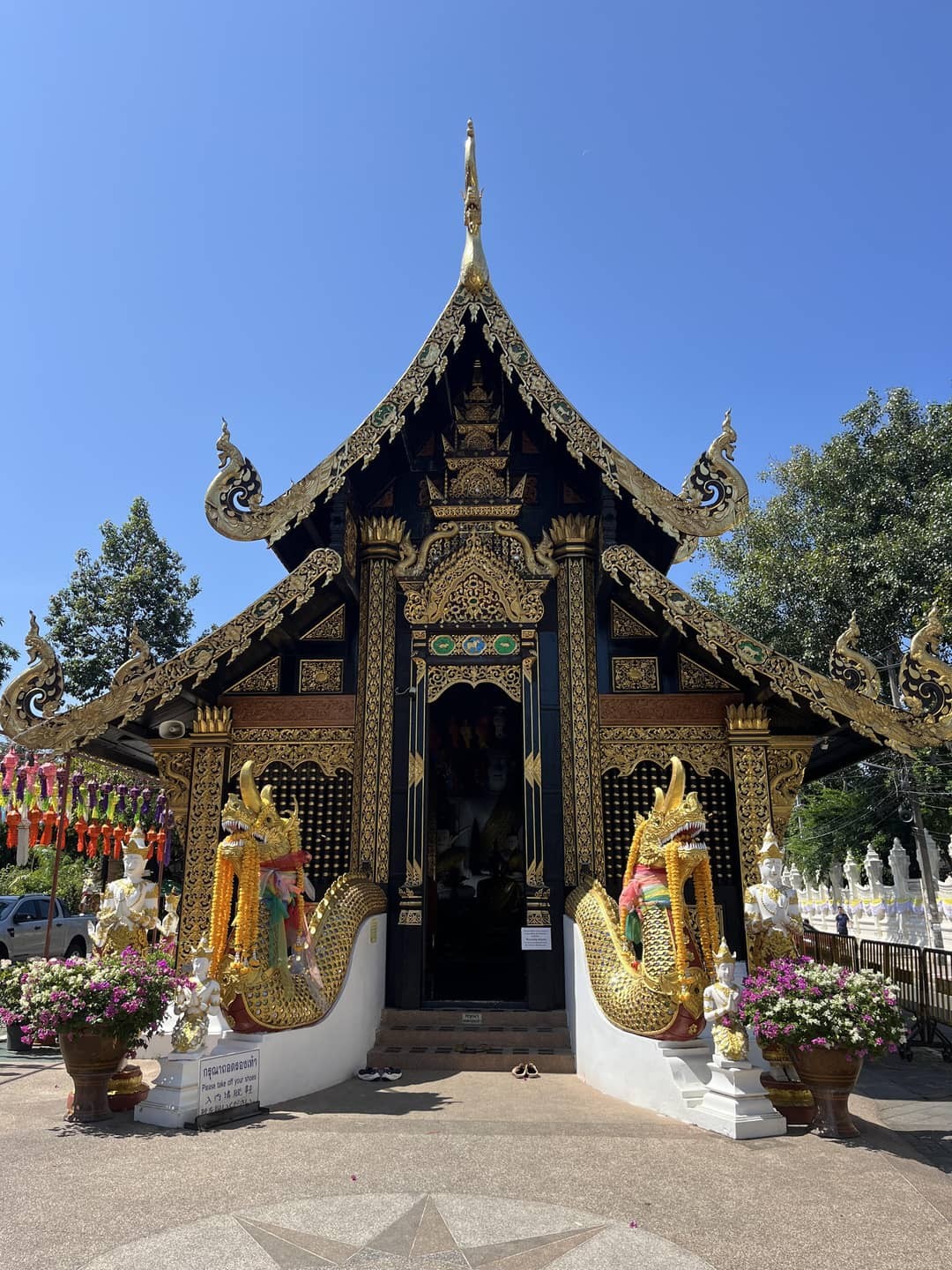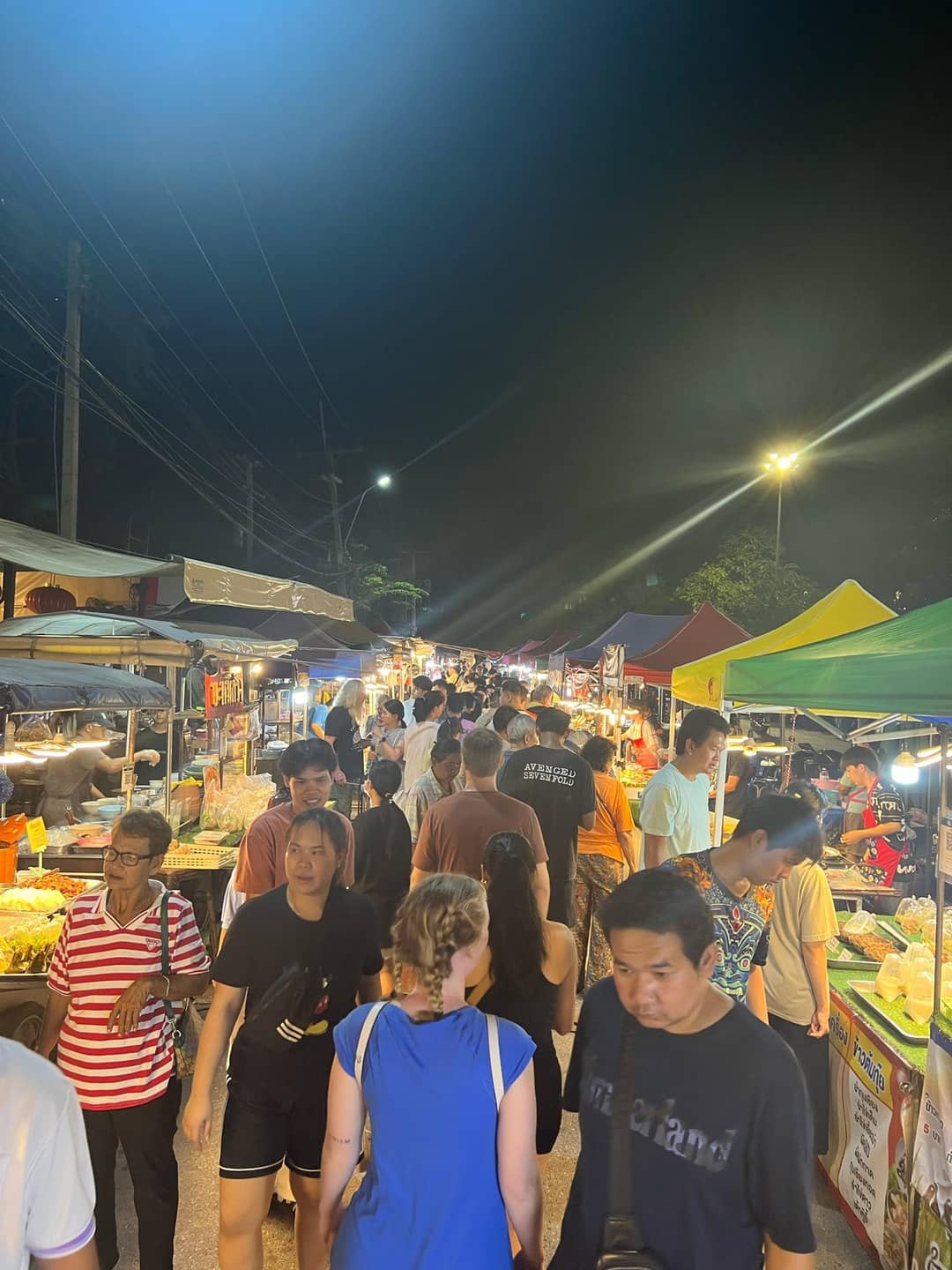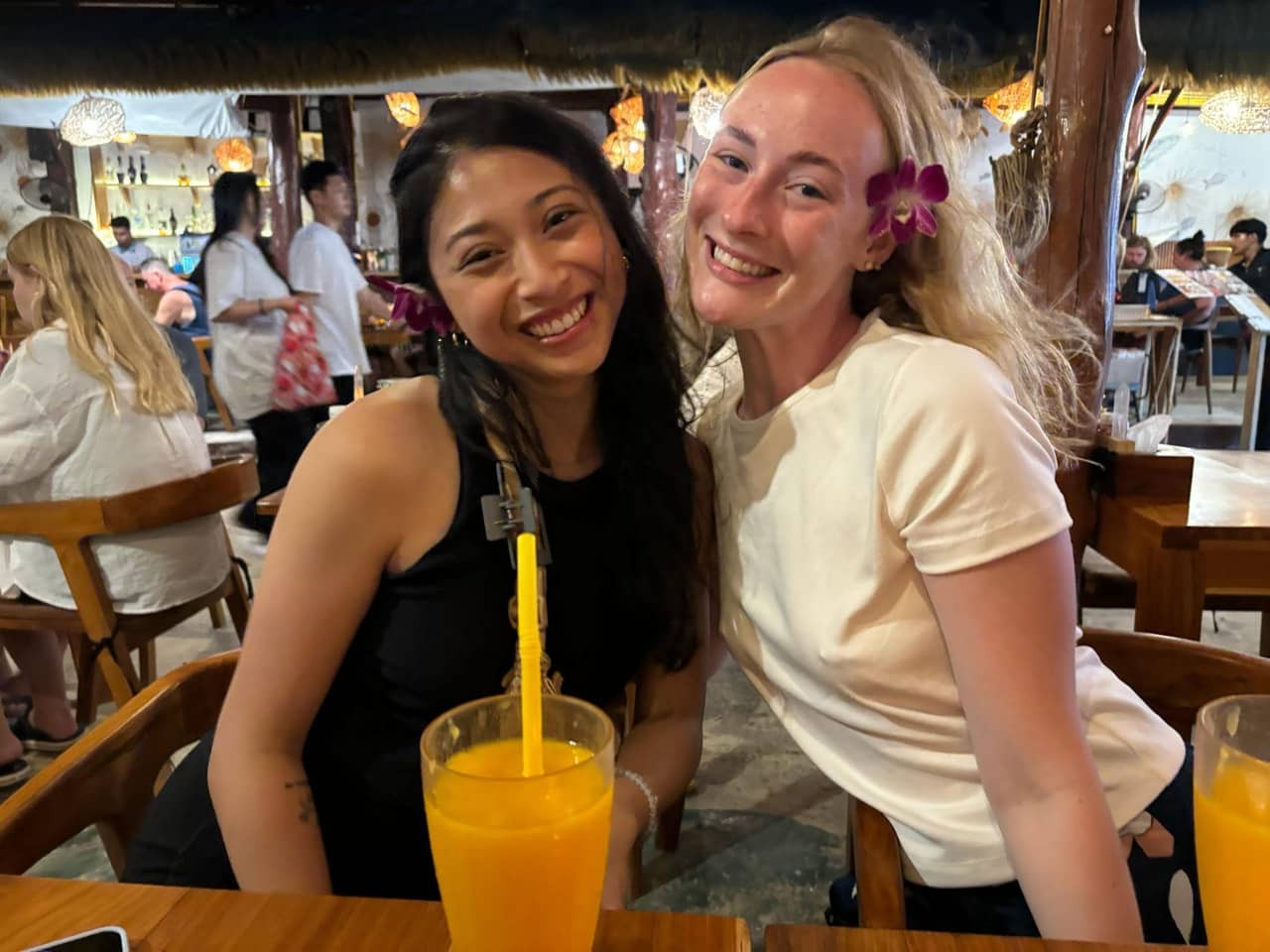Is Thailand Safe To Travel? Absolutely! Thailand welcomes millions of tourists each year, and with good reason. It’s a land of breathtaking temples, vibrant culture, and stunning landscapes. But like any travel destination, safety is a crucial consideration. TRAVELS.EDU.VN is here to provide you with a comprehensive guide to ensure a safe and unforgettable journey. We’ll delve into various aspects of safety in Thailand, including personal safety, health precautions, and transportation tips. Whether you’re a solo female traveler or exploring with family and friends, understanding the nuances of Thailand will help you navigate your trip with confidence. Plan your trip to Thailand with TRAVELS.EDU.VN for a secure and culturally immersive experience, and be sure to explore nearby Southeast Asian countries like Vietnam and Cambodia.
1. Understanding Safety in Thailand: An Overview
Thailand, often called the “Land of Smiles,” is generally a safe country for travelers. However, it’s essential to stay informed about potential risks and how to mitigate them. According to the U.S. Department of State, while millions of Americans visit Thailand each year without incident, it’s crucial to be aware of common scams, petty theft, and traffic safety. Being prepared and practicing common sense can greatly enhance your safety and overall experience.
1.1. Crime Rates and Tourist Safety
While violent crime is relatively low in Thailand, petty theft and scams targeting tourists are more common. Areas with high tourist traffic, such as Bangkok’s Khao San Road or popular beaches in Phuket, can attract pickpockets and scammers.
Common Scams in Thailand:
- Gem Scams: Unsolicited offers to buy gems at a low price, which turn out to be worthless.
- Taxi and Tuk-Tuk Scams: Overcharging, taking longer routes, or claiming famous attractions are closed to take you to a different (often overpriced) location.
- Jet Ski Scams: Renting a jet ski and being falsely accused of damage upon return.
- Temple Scams: Being told a temple is closed and then being directed to a tailor or shop where you’re pressured to buy something.
1.2. Political Stability and Public Safety
Thailand has experienced periods of political instability. While major political events are not common, it’s essential to stay informed about any potential demonstrations or unrest. Check local news and government advisories for updates. Public safety is generally well-maintained, but it’s always wise to avoid large gatherings or protests, especially if you’re unsure of the situation.
1.3. Natural Disasters and Environmental Safety
Thailand is prone to certain natural disasters, including monsoons, floods, and occasional earthquakes. The monsoon season, typically from May to October, can bring heavy rainfall and flooding, especially in the central and southern regions. Coastal areas are also vulnerable to tsunamis. Always monitor weather forecasts and heed any warnings issued by local authorities.
2. Is Thailand Safe for Solo Female Travelers?
Thailand is a popular destination for solo female travelers, and many women have positive experiences. The key to a safe trip lies in preparation, awareness, and trusting your instincts.
2.1. Personal Safety Tips for Women
- Dress Conservatively: While Thailand is relatively liberal, dressing modestly, especially when visiting temples or rural areas, can help avoid unwanted attention.
- Avoid Walking Alone at Night: Stick to well-lit and populated areas, especially in cities like Bangkok. If you must walk alone, consider using a taxi or ride-sharing service.
- Be Cautious with Strangers: While most Thais are friendly and helpful, it’s wise to be cautious when approached by strangers. Avoid accepting drinks or going to unfamiliar places with people you’ve just met.
- Share Your Itinerary: Let friends or family know your travel plans and check in with them regularly.
- Use Secure Transportation: Opt for reputable taxi services or ride-sharing apps like Grab. Ensure the taxi meter is running or negotiate the fare beforehand.
2.2. Accommodation and Location Considerations
- Choose Reputable Hotels: Select well-reviewed hotels or guesthouses in safe areas. Read reviews from other female travelers for insights into the property’s safety and suitability.
- Stay in Central Locations: Opt for accommodations in central areas that are close to public transportation and have good street lighting.
- Use Hotel Safes: Store valuables, such as passports, money, and electronics, in the hotel safe.
2.3. Real-Life Experiences and Testimonials
Many solo female travelers share their experiences online, offering valuable tips and reassurance. Travel blogs and forums often feature firsthand accounts of women who have explored Thailand safely and enjoyably. These stories highlight the importance of cultural awareness, self-confidence, and common sense.
 Solo female traveler enjoying the beauty of a temple in Chiang Mai.
Solo female traveler enjoying the beauty of a temple in Chiang Mai.
Exploring the ancient temples of Chiang Mai as a solo female traveler.
3. Health and Medical Safety in Thailand
Maintaining good health is essential for a safe and enjoyable trip. Thailand has a generally good standard of healthcare, but it’s important to be aware of potential health risks and take necessary precautions.
3.1. Vaccinations and Required Health Precautions
- Routine Vaccinations: Ensure you’re up to date with routine vaccinations, such as measles, mumps, rubella (MMR), diphtheria, tetanus, pertussis, polio, and influenza.
- Recommended Vaccinations: Consult your doctor about recommended vaccinations for Thailand, which may include hepatitis A, hepatitis B, typhoid, Japanese encephalitis, and rabies.
- Malaria: Malaria is present in some areas of Thailand, particularly rural, forested regions bordering Myanmar, Laos, and Cambodia. If you’re traveling to these areas, your doctor may recommend antimalarial medication.
3.2. Food and Water Safety
- Drink Bottled Water: Tap water in Thailand is generally not safe to drink. Stick to bottled water and avoid ice in drinks unless you’re sure it’s made from purified water.
- Eat at Reputable Establishments: Choose restaurants and street food vendors that appear clean and have a high turnover of customers.
- Be Careful with Street Food: While street food is a highlight of Thai cuisine, be cautious about hygiene. Ensure the food is freshly cooked and served hot.
- Avoid Raw or Undercooked Foods: Raw seafood and undercooked meats can carry bacteria and parasites.
3.3. Common Illnesses and How to Avoid Them
- Traveler’s Diarrhea: The most common illness among travelers. Prevent it by practicing good hygiene and being cautious about food and water.
- Dengue Fever: Transmitted by mosquitoes. Use mosquito repellent and wear long sleeves and pants, especially at dawn and dusk.
- Zika Virus: Present in Thailand. Take precautions to avoid mosquito bites, especially if you’re pregnant or planning to become pregnant.
- Heatstroke: Thailand can be very hot and humid. Stay hydrated, avoid strenuous activities during the hottest part of the day, and wear lightweight, breathable clothing.
3.4. Accessing Medical Care in Thailand
- Travel Insurance: Purchase comprehensive travel insurance that covers medical expenses, including hospitalization and evacuation.
- International Hospitals: Major cities like Bangkok and Chiang Mai have international hospitals with English-speaking staff and high standards of care.
- Pharmacies: Pharmacies are readily available and can provide over-the-counter medications for minor ailments.
4. Transportation Safety in Thailand
Navigating Thailand’s transportation system requires caution and awareness. Whether you’re using taxis, tuk-tuks, buses, or trains, understanding the risks and taking precautions can help ensure a safe journey.
4.1. Taxi and Tuk-Tuk Safety
- Use Metered Taxis: Insist on using metered taxis in cities like Bangkok. If the driver refuses, negotiate the fare beforehand or find another taxi.
- Be Wary of Tuk-Tuks: Tuk-tuks are a fun way to get around, but they often overcharge tourists. Negotiate the fare before getting in and be aware of potential scams.
- Use Ride-Sharing Apps: Ride-sharing apps like Grab are a convenient and reliable option. They provide fixed fares and track the ride, enhancing safety.
4.2. Bus and Train Travel
- Choose Reputable Bus Companies: Opt for reputable bus companies for long-distance travel. Check reviews and ratings before booking.
- Keep Valuables Close: Be vigilant about your belongings on buses and trains. Keep valuables in a secure bag and within sight.
- Overnight Travel: If traveling overnight, choose a seat near the front of the bus or train for added security.
4.3. Motorbike and Scooter Safety
- Wear a Helmet: Always wear a helmet when riding a motorbike or scooter.
- Have a Valid License: Ensure you have a valid motorcycle license from your home country or an international driving permit.
- Be Aware of Traffic Conditions: Thai roads can be chaotic. Drive defensively and be aware of other vehicles, pedestrians, and road hazards.
- Insurance Coverage: Check if your travel insurance covers motorbike accidents.
4.4. Water Transportation
- Use Reputable Boat Operators: Choose reputable boat operators for island hopping or river cruises.
- Check Safety Equipment: Ensure the boat has life jackets and other safety equipment.
- Be Aware of Weather Conditions: Check the weather forecast before embarking on a boat trip.
 Navigating the bustling streets of Bangkok in a tuk-tuk.
Navigating the bustling streets of Bangkok in a tuk-tuk.
Experiencing the vibrant culture of Thailand by riding a tuk-tuk through a night market.
5. Cultural Sensitivity and Respect
Respecting local customs and traditions is essential for a positive and safe travel experience in Thailand. Understanding Thai culture can help you avoid misunderstandings and build positive relationships with locals.
5.1. Dos and Don’ts of Thai Culture
- Dress Respectfully: When visiting temples, dress modestly, covering your shoulders and knees. Remove your shoes before entering temple buildings.
- Respect the Monarchy: The Thai monarchy is highly revered. Avoid making negative comments or gestures about the royal family.
- Be Mindful of Public Displays of Affection: Public displays of affection are generally frowned upon.
- Use Your Right Hand: Use your right hand when giving or receiving items, as the left hand is considered unclean.
- Remove Shoes: Remove your shoes before entering homes and some shops.
- Keep Your Voice Down: Avoid raising your voice or arguing in public.
5.2. Language Basics and Communication Tips
- Learn Basic Phrases: Learning a few basic Thai phrases, such as “Sawasdee” (hello) and “Khop Khun” (thank you), can go a long way in showing respect and building rapport.
- Be Patient: Communication can sometimes be challenging due to language barriers. Be patient and try to communicate clearly.
- Use Gestures: Simple gestures, such as pointing or smiling, can help bridge communication gaps.
5.3. Avoiding Cultural Misunderstandings
- Be Aware of Facial Expressions: Thais often avoid direct confrontation and may use a smile to mask discomfort or disagreement.
- Respect Personal Space: Avoid touching people’s heads, as it’s considered the most sacred part of the body.
- Be Mindful of Religious Symbols: Treat religious symbols and images with respect.
6. Practical Safety Tips for a Worry-Free Trip
Beyond the broader safety considerations, several practical tips can help you navigate Thailand with greater confidence and ease.
6.1. Emergency Contacts and Important Numbers
- Police: 191
- Tourist Police: 1155
- Ambulance: 1669
- Fire Department: 199
- U.S. Embassy in Bangkok: +66 2 205 4000
- TRAVELS.EDU.VN Support: +1 (707) 257-5400
6.2. Travel Insurance Essentials
- Medical Coverage: Ensure your travel insurance covers medical expenses, including hospitalization, surgery, and medication.
- Trip Cancellation and Interruption: Look for coverage that protects you in case of trip cancellation or interruption due to illness, injury, or other unforeseen circumstances.
- Lost or Stolen Items: Ensure your policy covers lost or stolen items, such as luggage, passports, and electronics.
- Emergency Evacuation: Consider a policy that includes emergency evacuation coverage in case you need to be transported to a better-equipped medical facility.
6.3. Keeping Your Belongings Safe
- Use a Crossbody Bag: Opt for a crossbody bag or money belt to keep your valuables secure.
- Avoid Flashy Displays of Wealth: Avoid wearing expensive jewelry or displaying large amounts of cash in public.
- Be Vigilant in Crowded Areas: Keep a close eye on your belongings in crowded areas, such as markets and public transportation.
- Use Hotel Safes: Store valuables in the hotel safe when you’re not using them.
6.4. Staying Connected and Informed
- Purchase a Local SIM Card: A local SIM card can provide affordable data and call rates, allowing you to stay connected and access important information.
- Download Useful Apps: Download apps like Google Translate, Maps.me (for offline maps), and ride-sharing apps like Grab.
- Follow Local News: Stay informed about current events and any potential safety concerns by following local news outlets.
7. How TRAVELS.EDU.VN Enhances Your Safety in Thailand
Choosing TRAVELS.EDU.VN for your trip to Thailand offers numerous advantages, particularly in terms of safety and support. We are committed to ensuring our clients have a worry-free and enriching travel experience.
7.1. Pre-Trip Planning and Information
- Comprehensive Travel Guides: TRAVELS.EDU.VN provides detailed travel guides covering various aspects of safety, health, and cultural sensitivity.
- Personalized Itineraries: We create personalized itineraries that take into account your safety preferences and concerns.
- Expert Advice: Our travel experts offer personalized advice and recommendations based on your individual needs and travel style.
7.2. On-the-Ground Support and Assistance
- 24/7 Support: TRAVELS.EDU.VN offers 24/7 support to assist you with any issues or emergencies that may arise during your trip. Contact us via WhatsApp at +1 (707) 257-5400.
- Local Contacts: We provide you with a list of local contacts, including emergency numbers, hospitals, and our local representatives.
- Assistance with Scams: Our team can assist you in dealing with scams or other issues you may encounter, providing guidance and support.
7.3. Trusted Partners and Suppliers
- Reputable Hotels: TRAVELS.EDU.VN partners with reputable hotels and accommodations that meet high standards of safety and security.
- Reliable Transportation: We work with reliable transportation providers, ensuring safe and comfortable travel throughout Thailand.
- Qualified Guides: Our tours are led by qualified and experienced guides who are knowledgeable about local customs and safety protocols.
7.4. Tailored Experiences for Solo Travelers and Groups
- Solo Traveler Support: We offer specialized support for solo travelers, including pre-trip advice, group activities, and safety tips.
- Group Travel Options: Our group tours provide a safe and social way to explore Thailand, with the added security of traveling with a group and a knowledgeable guide.
- Customized Safety Briefings: We provide customized safety briefings for all our clients, covering potential risks and how to mitigate them.
 Travelers enjoying a guided tour of a historical site in Ayutthaya.
Travelers enjoying a guided tour of a historical site in Ayutthaya.
Discovering the rich history and culture of Ayutthaya with a knowledgeable TRAVELS.EDU.VN guide.
8. Real-Life Safety Scenarios and How to Handle Them
Being prepared for potential safety scenarios can help you react effectively and minimize risks. Here are some common situations and how to handle them:
8.1. Dealing with Petty Theft
- Scenario: You’re walking through a crowded market and realize your wallet is missing.
- Action: Immediately report the theft to the local police and your travel insurance provider. Cancel any credit cards that were in your wallet.
8.2. Avoiding Scams
- Scenario: A stranger approaches you and offers to take you to a “secret” temple or gem shop.
- Action: Politely decline and walk away. These types of offers are often scams.
8.3. Handling Unwanted Attention
- Scenario: You’re a solo female traveler and someone is making you feel uncomfortable.
- Action: Be assertive and tell them to leave you alone. Move to a more public area and seek assistance if needed.
8.4. Responding to Medical Emergencies
- Scenario: You experience a sudden illness or injury.
- Action: Seek medical attention immediately. Contact your travel insurance provider and TRAVELS.EDU.VN support for assistance.
8.5. Navigating Political Unrest
- Scenario: You hear about a potential protest or demonstration.
- Action: Avoid the area and stay informed about the situation. Follow the advice of local authorities and TRAVELS.EDU.VN support.
9. Recent Safety Updates and Travel Advisories
Staying up-to-date with the latest safety information is crucial for making informed travel decisions. Check the following resources for recent safety updates and travel advisories:
- U.S. Department of State: Travel advisories for Thailand.
- Centers for Disease Control and Prevention (CDC): Health information for travelers to Thailand.
- World Health Organization (WHO): Health updates and travel advice.
- Local News Outlets: Stay informed about current events and safety concerns in Thailand.
10. Frequently Asked Questions (FAQs) About Safety in Thailand
1. Is Thailand safe for tourists?
Yes, Thailand is generally safe for tourists, but it’s important to be aware of potential risks such as petty theft and scams.
2. Is Thailand safe for solo female travelers?
Yes, many women travel solo in Thailand and have positive experiences. However, it’s important to take precautions and be aware of your surroundings.
3. What are some common scams in Thailand?
Common scams include gem scams, taxi and tuk-tuk scams, and jet ski scams.
4. Is the tap water safe to drink in Thailand?
No, tap water in Thailand is generally not safe to drink. Stick to bottled water.
5. What vaccinations do I need for Thailand?
Recommended vaccinations may include hepatitis A, hepatitis B, typhoid, Japanese encephalitis, and rabies. Consult your doctor for personalized advice.
6. How can I stay safe on public transportation in Thailand?
Be vigilant about your belongings, choose reputable companies, and use ride-sharing apps when possible.
7. What should I do if I experience a medical emergency in Thailand?
Seek medical attention immediately and contact your travel insurance provider and TRAVELS.EDU.VN support.
8. How can TRAVELS.EDU.VN help me stay safe in Thailand?
TRAVELS.EDU.VN provides comprehensive travel guides, personalized itineraries, 24/7 support, and works with trusted partners to ensure your safety.
9. What should I do if I encounter political unrest in Thailand?
Avoid the area and stay informed about the situation. Follow the advice of local authorities and TRAVELS.EDU.VN support.
10. How can I contact TRAVELS.EDU.VN for support during my trip?
You can contact TRAVELS.EDU.VN via WhatsApp at +1 (707) 257-5400 or visit our website at TRAVELS.EDU.VN.
Conclusion: Enjoy a Safe and Unforgettable Trip to Thailand with TRAVELS.EDU.VN
Thailand offers a wealth of cultural, historical, and natural attractions, making it a must-visit destination for travelers worldwide. By understanding potential risks, taking necessary precautions, and respecting local customs, you can ensure a safe and unforgettable trip. With TRAVELS.EDU.VN, you’ll have the support and resources you need to navigate Thailand with confidence.
Ready to explore the “Land of Smiles”? Contact TRAVELS.EDU.VN today at +1 (707) 257-5400 or visit our website at travels.edu.vn to book your personalized and safe Thailand adventure. Our address is 123 Main St, Napa, CA 94559, United States. Let us help you create memories that will last a lifetime.
